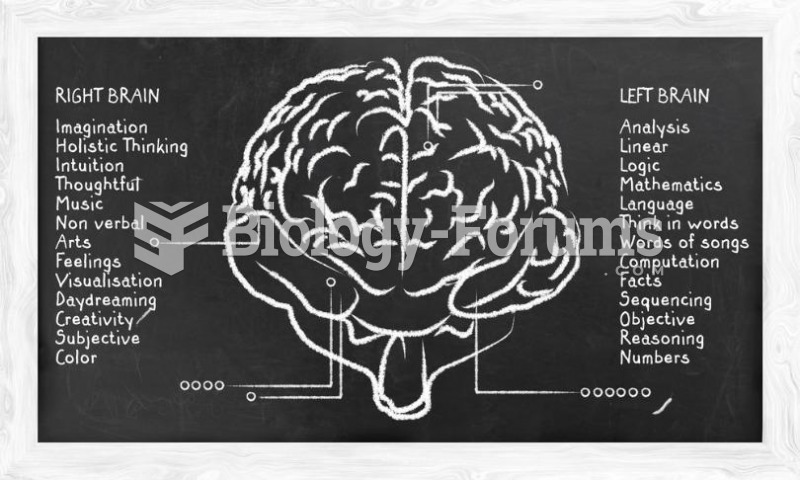|
|
|
The first oral chemotherapy drug for colon cancer was approved by FDA in 2001.
A serious new warning has been established for pregnant women against taking ACE inhibitors during pregnancy. In the study, the risk of major birth defects in children whose mothers took ACE inhibitors during the first trimester was nearly three times higher than in children whose mothers didn't take ACE inhibitors. Physicians can prescribe alternative medications for pregnant women who have symptoms of high blood pressure.
Nearly 31 million adults in America have a total cholesterol level that is more than 240 mg per dL.
Bacteria have been found alive in a lake buried one half mile under ice in Antarctica.
Addicts to opiates often avoid treatment because they are afraid of withdrawal. Though unpleasant, with proper management, withdrawal is rarely fatal and passes relatively quickly.







